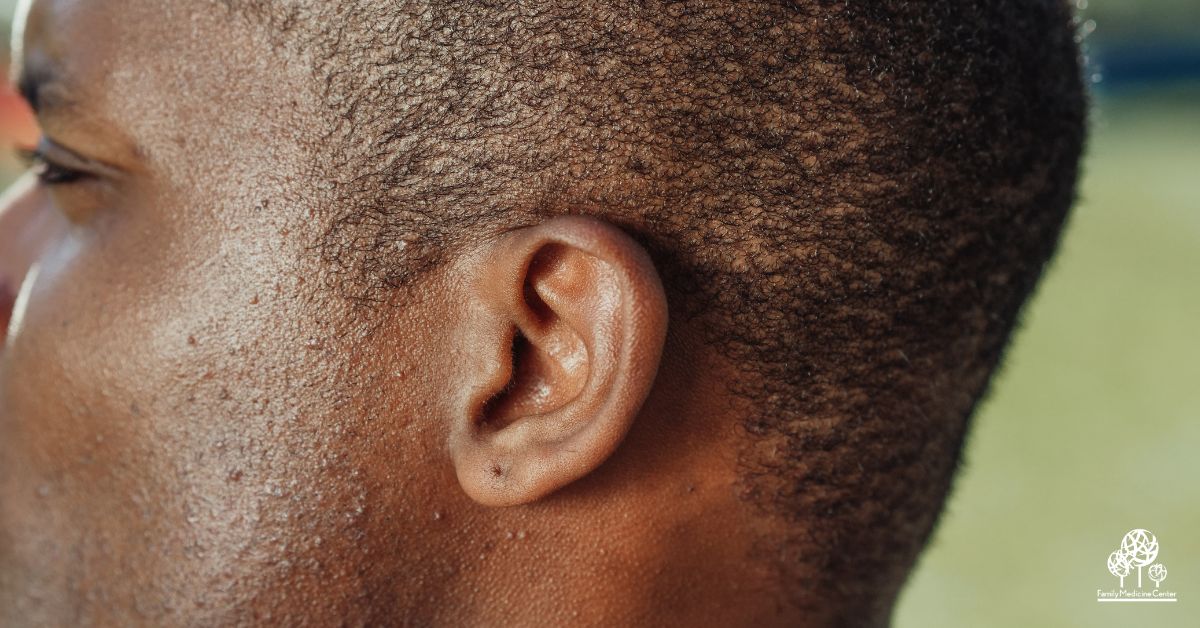Untreated hearing loss has been linked to memory decline, social isolation, and depression. Protect your brain by taking care of your ears.
Hearing may seem like a simple sense, but it plays a powerful role in how the brain processes information, forms memories, and stays emotionally balanced.
When hearing loss goes untreated, the consequences often extend far beyond missed conversations. The brain works harder to interpret sound, communication becomes more frustrating, and social withdrawal can quietly set in. Over time, this strain can affect mental clarity, mood, and even increase the risk of cognitive decline.
Here’s how your hearing and brain health are connected and why regular hearing checks are about more than just your ears.
🧠 Hearing Loss Increases Cognitive Load
When the brain doesn’t receive clear sound signals, it compensates by working harder to process muffled or incomplete information. This added effort, known as “cognitive load,” can exhaust mental resources and affect memory and concentration.
👀 What to watch for: Struggling to focus or remember details during conversations or meetings.
💡 Pro tip: Think of hearing aids as brain tools, not just ear tools. They reduce mental strain and help preserve cognitive function over time.
🗨️ Communication Becomes Emotionally Draining
When it’s hard to hear, even small talk can feel like a chore. Misunderstandings pile up, and many begin to avoid social interaction altogether, leading to isolation and frustration.
💬 Sound familiar? You’re nodding along in conversations but missing key parts or avoiding group settings entirely.
💡 Pro tip: Staying socially active is a known factor in maintaining mental sharpness. Treating hearing loss can make staying connected easier and more enjoyable.
📉 Hearing Loss Has Been Linked to Dementia
Multiple studies have shown that untreated hearing loss is associated with a higher risk of cognitive decline and dementia. While researchers are still studying the exact mechanisms, the link is strong enough to warrant action, especially for adults over 50.
👀 What to watch for: Gradual hearing changes that you’ve “just gotten used to” over the years.
💡 Pro tip: Addressing hearing loss early may help reduce the risk of age-related memory problems. It’s one of the few modifiable risk factors for dementia.
😔 Depression and Anxiety Are More Common with Hearing Loss
When hearing becomes a daily challenge, it can impact confidence, independence, and overall mood. Feelings of embarrassment, frustration, or loneliness are common among those with untreated hearing issues.
💬 Sound familiar? You feel anxious in group settings or increasingly left out of conversations.
💡 Pro tip: Mental health professionals often recommend hearing assessments as part of comprehensive wellness care, especially when emotional symptoms don’t improve.
👂 Early Action Makes a Difference
Hearing loss often develops gradually and many people wait years before seeking help. But the earlier it’s addressed, the better the outcomes for both brain function and emotional wellbeing.
👀 What to watch for: Frequent need to ask others to repeat themselves, especially in noisy environments.
💡 Pro tip: You don’t have to wait for hearing to “get bad” to benefit from support. Even mild hearing loss deserves attention.
Healthy Ears. Healthy Mind.
Your hearing is more than just a sense – it’s a gateway to your brain, your relationships, and your emotional health. Prioritizing your hearing today can help protect memory, boost mood, and support lifelong mental sharpness.
We provide comprehensive hearing evaluations, tinnitus support, hearing aid fittings, and personalized treatment plans to help you hear — and feel — your best.
📞 Call (242) 702-9310 to book your hearing assessment with Audiologist Dr. Kim Scriven.

